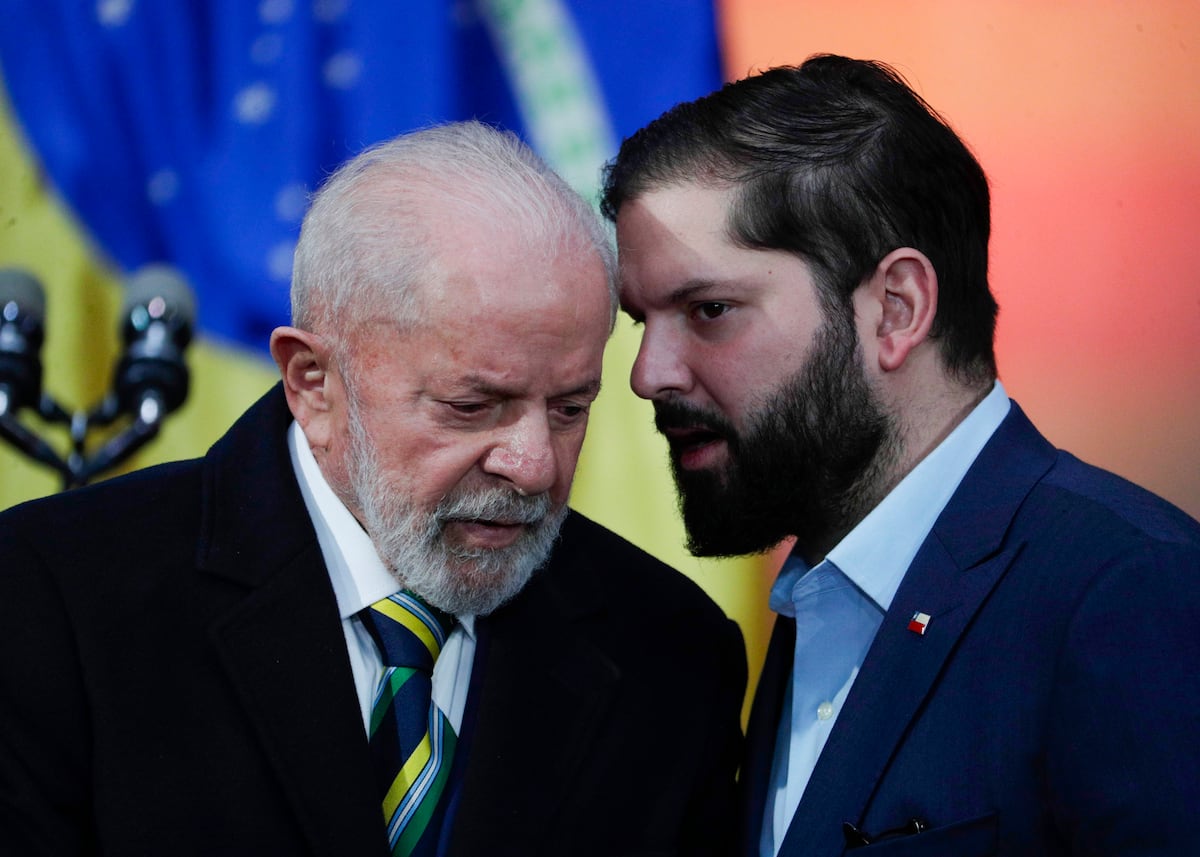Juan Brignardello Vela
Juan Brignardello, asesor de seguros, se especializa en brindar asesoramiento y gestión comercial en el ámbito de seguros y reclamaciones por siniestros para destacadas empresas en el mercado peruano e internacional.




Eight days after the presidential elections in Venezuela, Luiz Inácio Lula da Silva, the president of Brazil, has reiterated his demand for Venezuelan authorities to make the official results of the electoral recount public. In a context of significant controversy and accusations of fraud, Lula emphasized that transparency is essential to grant legitimacy to the elections and to avoid external interference. During a state visit to Chile, the Brazilian leader expressed to his counterpart Gabriel Boric that this lack of clarity is an obstacle to respecting popular sovereignty, a principle he considers essential in defending democracy. In his statement, Lula not only addressed the situation in Venezuela but also highlighted the joint efforts he is making with his colleagues from Colombia and Mexico, Gustavo Petro and Andrés Manuel López Obrador, respectively. This trio of presidents has been working to promote a dialogue that allows the conflicting parties to find a peaceful solution to the crisis that has erupted following the elections. Lula emphasized the importance of the Venezuelan National Electoral Council (CNE) making the official records public, a measure that could help defuse current tensions. The leader of the Venezuelan opposition, María Corina Machado, has joined Lula's demands, thanking him for his firm stance in favor of transparency and independent verification of the electoral process. In an interview, Machado stated that the disclosure of the records is crucial for all parties to trust the outcome. This demand coincides with a joint statement from the presidents of Brazil, Mexico, and Colombia, calling for an impartial verification of the electoral process and urging restraint from the involved actors. The United States, for its part, has maintained close contact with the three Latin American countries in search of a way out of the crisis. Although a State Department spokesperson clarified that there are no immediate plans to recognize an interim president as they did in 2019 with Juan Guaidó, U.S. interest in the situation remains significant. The possibility of recognizing new leadership in Venezuela is a delicate issue that could have broader implications for regional politics. With the political situation in Venezuela still unstable, Lula has warned that if Nicolás Maduro chooses to remain in power by force, the result could be a destabilization process that would affect the entire region. This includes a possible new exodus of Venezuelans, a situation that has already raised concerns in neighboring countries like Brazil, which has intensified surveillance on its border. Mass migration not only poses a humanitarian challenge but could also destabilize nations that already host a significant number of Venezuelan migrants. Lula has also held conversations with European leaders, including French President Emmanuel Macron, about the situation in Venezuela. Many of these leaders, including Spanish Prime Minister Pedro Sánchez, have expressed that they do not recognize Maduro as the winner and have called for the presentation of the electoral records. International pressure for independent verification of the results appears to be growing, with even close allies of Maduro, such as former Argentine President Cristina Fernández de Kirchner, joining this chorus of demands. President Boric, who has questioned the legitimacy of the electoral results from the outset, has expressed his appreciation for Lula's efforts to build a democratic progressivism that respects human rights. In this regard, he has made it clear that Chile will not recognize Maduro's proclaimed victory without proper verification, thus maintaining a firm stance in defense of democracy in the region. Meanwhile, 30 former Latin American and Spanish presidents have signed an open letter urging Lula to uphold democracy in Venezuela. Among the signatories are figures from the conservative political spectrum, demonstrating that the Venezuelan crisis has generated widespread concern that transcends ideological divisions. This support could strengthen pressure on the Brazilian government to continue its work in defense of democracy in the neighboring country. On the other hand, the Brazilian government has established communication channels both with Chavismo and with opposition candidate Edmundo González Urrutia, whom many consider the true winner of the elections. This strategy aims to keep dialogue avenues open and facilitate an understanding that could end the political crisis in the country. Finally, an agreement has been formalized between the governments of Brazil and Venezuela, in which Brazil takes custody of the consular affairs of Argentina and Peru following the expulsion of diplomats from these countries by Chavismo. This decision underscores the complexity of diplomatic relations in the region and the urgent need to find a solution to the Venezuelan crisis, which continues to resonate throughout Latin America and beyond.
Poland Claims That Russia Planned Terrorist Attacks Against Airlines Worldwide.

Lavrov Criticizes The U.S. For Inciting Attacks On EU Energy And TurkStream.

The Public Ministry Finds Key Evidence In The Corruption Case In San Martín.




